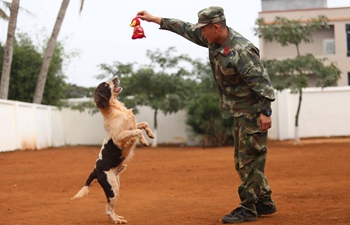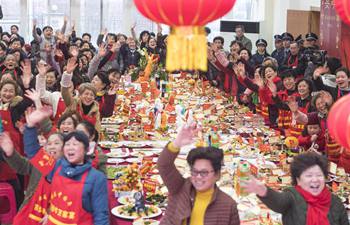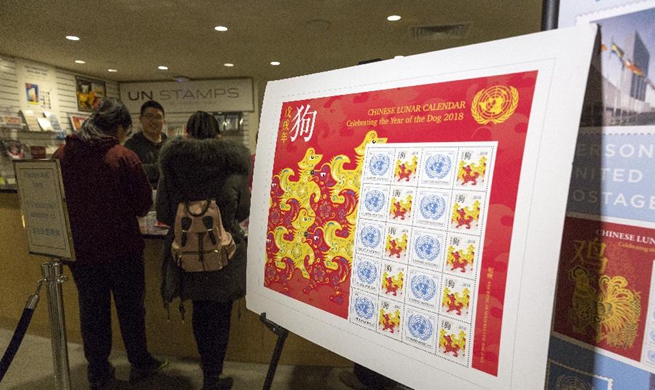by Willey Penuela
CARACAS, Feb. 9 (Xinhua) -- With presidential elections set to take place on April 22, the ruling United Socialist Party of Venezuela (PSUV) appears to have the upper hand, political observers have said.
The government displays unity, consensus and a willingness to find a negotiated solution to the country's political woes, while the right-wing opposition seems divided, contentious and reluctant to engage in dialogue, they said.
This week, perhaps emboldened by U.S. Secretary of State Rex Tillerson's anti-government rhetoric delivered before his five-nation visit to Latin America, the opposition abandoned a potential agreement on peaceful coexistence at the last minute.
The agreement would have seen both sides select a date for the elections, but with the opposition suddenly spurning any deal, the government was left to make a decision on its own.
The two sides "had come to an agreement" on several issues and "in the end, only the government signed," with the opposition refusing to do so, said Luis Quintana, an expert in international relations.
He added that the opposition's behavior actually gave a boost "to Venezuelan people's desire to have political conflicts resolved through political, peaceful and negotiated means."
The opposition may be shooting itself in the foot with its inflexible refusal to engage in dialogue, which makes it easier for President Nicolas Maduro to be reelected, he said.
Edgardo Antonio Ramirez, a professor at the Central University of Venezuela's School of International Studies, said that with a little more than two months left before the polls, "the opposition is divided."
"On the one hand, you have more extremist and violent sectors (of the opposition) that are not going to participate in the elections," said Ramirez, adding that on the other hand, there are the social democrats who will do the opposite.
Quintana agreed, saying the opposition will be "heading (to the polls) weakened, disunited, divided," and making it "much less likely to win when chavismo (political ideology based on the ideas of late Venezuelan President Hugo Chavez) is already gathered around a single leader."
However, both analysts agreed that the threat of stepped-up foreign intervention looms over the elections.
By refusing to sign an agreement with the government, "the opposition is telling the so-called international community that it should intervene with greater force," Quintana said.
He added that "more pressure on Venezuela and more illegal, unilateral sanctions against the government, officials as well as the Venezuelan economy" are likely to emerge.
"On the international scene, I see growing conflicts with Venezuela," Quintana said.
Ramirez also said that the United States "is pressuring other regional governments to intensify their political and economic measures" against Venezuela's government.
Still, the elections present a potential solution to overcoming the South American country's political stalemate, Ramirez said.
"Holding elections signifies that the Venezuelan people support peacefully resolving the major problems. The will and participation of the people will be decisive," Ramirez said.

















